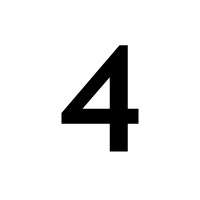- Afghanistan
- Åland Islands
- Albania
- Algeria
- American Samoa
- Andorra
- Angola
- Anguilla
- Antarctica
- Antigua and Barbuda
- Argentina
- Armenia
- Aruba
- Australia
- Austria
- Azerbaijan
- Bahamas
- Bahrain
- Bangladesh
- Barbados
- Belarus
- Belgium
- Belize
- Benin
- Bermuda
- Bhutan
- Bolivia
- Bonaire, Sint Eustatius, and Saba
- Bosnia and Herzegovina
- Botswana
- Bouvet Island
- Brazil
- British Indian Ocean Territory
- British Virgin Islands
- Brunei
- Bulgaria
- Burkina Faso
- Burundi
- Cambodia
- Cameroon
- Canada
- Cape Verde
- Cayman Islands
- Central African Republic
- Chad
- Chile
- China
- Christmas Island
- Cocos [Keeling] Islands
- Colombia
- Comoros
- Cook Islands
- Costa Rica
- Croatia
- Cuba
- Curaçao
- Cyprus
- Czech Republic
- Congo - Kinshasa
- Denmark
- Djibouti
- Dominica
- Dominican Republic
- Timor-Leste
- Ecuador
- Egypt
- El Salvador
- Equatorial Guinea
- Eritrea
- Estonia
- Ethiopia
- Falkland Islands
- Faroe Islands
- Fiji
- Finland
- France
- French Guiana
- French Polynesia
- French Southern Territories
- Gabon
- Gambia
- Georgia
- Germany
- Ghana
- Gibraltar
- Greece
- Greenland
- Grenada
- Guadeloupe
- Guam
- Guatemala
- Guernsey
- Guinea
- Guinea-Bissau
- Guyana
- Haiti
- Heard Island and McDonald Islands
- Honduras
- Hong Kong SAR China
- Hungary
- Iceland
- India
- Indonesia
- Iran
- Iraq
- Ireland
- Isle of Man
- Israel
- Italy
- Côte d’Ivoire
- Jamaica
- Japan
- Jersey
- Jordan
- Kazakhstan
- Kenya
- Kiribati
- Kosovo
- Kuwait
- Kyrgyzstan
- Laos
- Latvia
- Lebanon
- Lesotho
- Liberia
- Libya
- Liechtenstein
- Lithuania
- Luxembourg
- Macau SAR China
- Macedonia
- Madagascar
- Malawi
- Malaysia
- Maldives
- Mali
- Malta
- Marshall Islands
- Martinique
- Mauritania
- Mauritius
- Mayotte
- Mexico
- Micronesia
- Moldova
- Monaco
- Mongolia
- Montenegro
- Montserrat
- Morocco
- Mozambique
- Myanmar [Burma]
- Namibia
- Nauru
- Nepal
- Netherlands
- Netherlands Antilles
- New Caledonia
- New Zealand
- Nicaragua
- Niger
- Nigeria
- Niue
- Norfolk Island
- North Korea
- Northern Mariana Islands
- Norway
- Oman
- Pakistan
- Palau
- Palestinian Territories
- Panama
- Papua New Guinea
- Paraguay
- Peru
- Philippines
- Pitcairn Islands
- Poland
- Portugal
- Puerto Rico
- Qatar
- Congo - Brazzaville
- Réunion
- Romania
- Russia
- Rwanda
- Saint Barthélemy
- Saint Helena
- Saint Kitts and Nevis
- Saint Lucia
- Saint Martin
- Saint Pierre and Miquelon
- Saint Vincent and the Grenadines
- Samoa
- San Marino
- São Tomé and Príncipe
- Saudi Arabia
- Senegal
- Serbia
- Serbia and Montenegro
- Seychelles
- Sierra Leone
- Singapore
- Sint Maarten
- Slovakia
- Slovenia
- Solomon Islands
- Somalia
- South Africa
- South Georgia and the South Sandwich Islands
- South Korea
- South Sudan
- Spain
- Sri Lanka
- Sudan
- Suriname
- Svalbard and Jan Mayen
- Swaziland
- Sweden
- Switzerland
- Syria
- Taiwan
- Tajikistan
- Tanzania
- Thailand
- Togo
- Tokelau
- Tonga
- Trinidad and Tobago
- Tunisia
- Turkey
- Turkmenistan
- Turks and Caicos Islands
- Tuvalu
- U.S. Virgin Islands
- Uganda
- Ukraine
- United Arab Emirates
- United Kingdom
- United States
- U.S. Minor Outlying Islands
- Uruguay
- Uzbekistan
- Vanuatu
- Vatican City
- Venezuela
- Vietnam
- Wallis and Futuna
- Western Sahara
- Yemen
- Zambia
- Zimbabwe
How to Write a Cover Letter for an Actor

How to Write a Cover Letter for an Actor
Professional actors, like everyone else, must submit a resume and a cover letter with their application forms. However, actor cover letters are distinct from those of other professions, particularly in style. As a consequence, it is a wise decision to become familiar with cover letters in general, as well as the specific requirements for the performing profession. In this essay, we will go through the specifics of acting cover letters and how to write one.
What sets an actor cover letter out from the rest?
Cover letters often use a particular amount of formal, professional language. If you're searching for a role as an actor, your cover letter should reflect that. You may be asked to be creative in your writing and depiction of yourself by the receiver. You have more liberty to deviate from the typical cover letter structure as long as it distinguishes your application.
In order to make your cover letter stand out, strive to be real and direct. Prospective employers receive a significant number of applications and do not have time to respond to each one individually. While you may utilise more creativity and energy than in a standard cover letter, keep it in context. The fundamental goal of your cover letter is to persuade the reader in as few words as possible.
How to Write a Cover Letter for an Actor
While your actor cover letter might be unique, it must still serve the aim of a cover letter, which is to inform and persuade the recruiter. One of the most important aspects of a good cover letter is that it is tailored to the position for which you are applying. This needs that you be knowledgeable about both the position and the company that is selling it. Any additional creativity or deviation from the usual framework must contribute to the cover letter's persuasiveness. To write an outstanding actor cover letter, follow these steps:
You'll be in a better position to tailor your cover letter if you research both the job and the company to which you're applying. As an actor, you may use your own network to learn about any important information that would help your application. There is also a wealth of free information available on the internet. The name of the individual who will be receiving your cover letter is one of the most important factors.
When you send a cover letter to the recipient by name, it immediately demonstrates that you are not using the same, basic cover letter for several applications. This indicates your research and professionalism, which is especially important given how many other candidates chose something more generic.
By explaining the specifics of the position for which you are seeking, you may establish that you are genuinely interested in it. Some information may be available in job advertisements, but you may be able to learn more through study and networking. Discuss your interest in the position and why you feel you are a strong candidate.
In this portion of your cover letter, you may highlight your relevant acting skills and expertise. Include any past similar employment you've held, as well as any other skills that may be relevant. Link your talents to the criteria given in the job description wherever possible, and provide additional information when possible. It is usually advisable to state that you played particular acting roles within the context of the performance rather than proclaiming them to be true. 'I have performed in Shakespearean plays in London, Oxford, and Liverpool,' for example, is superior to 'I am capable of performing in Shakespearean plays.'
After you've done the preceding steps, thank the receiver for reading your cover letter and considering your application. You may convey your enthusiasm for the position one last time, saying you're looking forward to researching it further or casting for it. At the bottom, formalise the letter's conclusion and include your contact information.
It is advisable to check a cover letter before sending it. You may use this time to correct any grammatical or spelling errors, as well as to ensure that your phrases and paragraphs are of appropriate length. You may also assess how enticing the cover letter is and whether you went overboard with your creativity. You might also start with a standard cover letter and then add some distinctive aspects to it. Request that folks you respect and who have professional expertise examine and give feedback on your cover letter.
Below is a three-part checklist to help you evaluate your cover letter. This section goes through the most important elements of a good acting cover letter. When reviewing, ensure that it is:
Concise
With even more room, aim for a one-page cover letter at most. Make sure your paragraphs are no more than four or five lines long, and that your sentences are basic and unambiguous. Even if you have more creative freedom, be sure it isn't excessive or inappropriate.
Relevant
You might save time by employing a template to compose your cover letters. This is rather frequent and may be useful for sending many applications, as long as the end outcome is unique for each letter. Make sure you are familiar with the position and business to which you are applying so that you can tailor your cover letter to their specific needs.
Appealing
In order to persuade the reader, your cover letter must be engaging. This is achievable through a mix of relevance, commitment, and creativity. Many other candidates write generic or regular cover letters, so yours should stand out. Examine your cover letter as if you were a recruiter or casting director, and see whether it stands out. Consider if you would cast this person or wish to see them audition. If you replied no to any of these questions, look through the sections of your cover letter that may be improved.

 by Admin
by Admin


